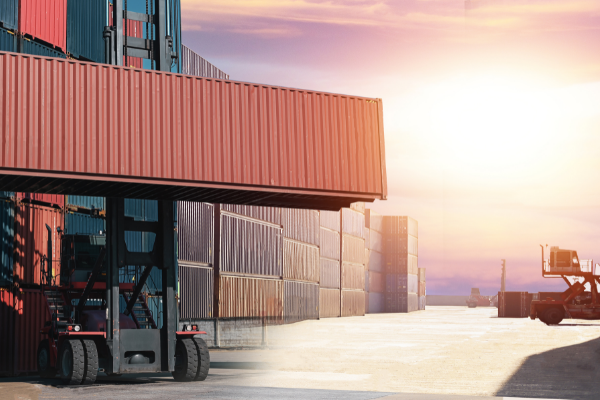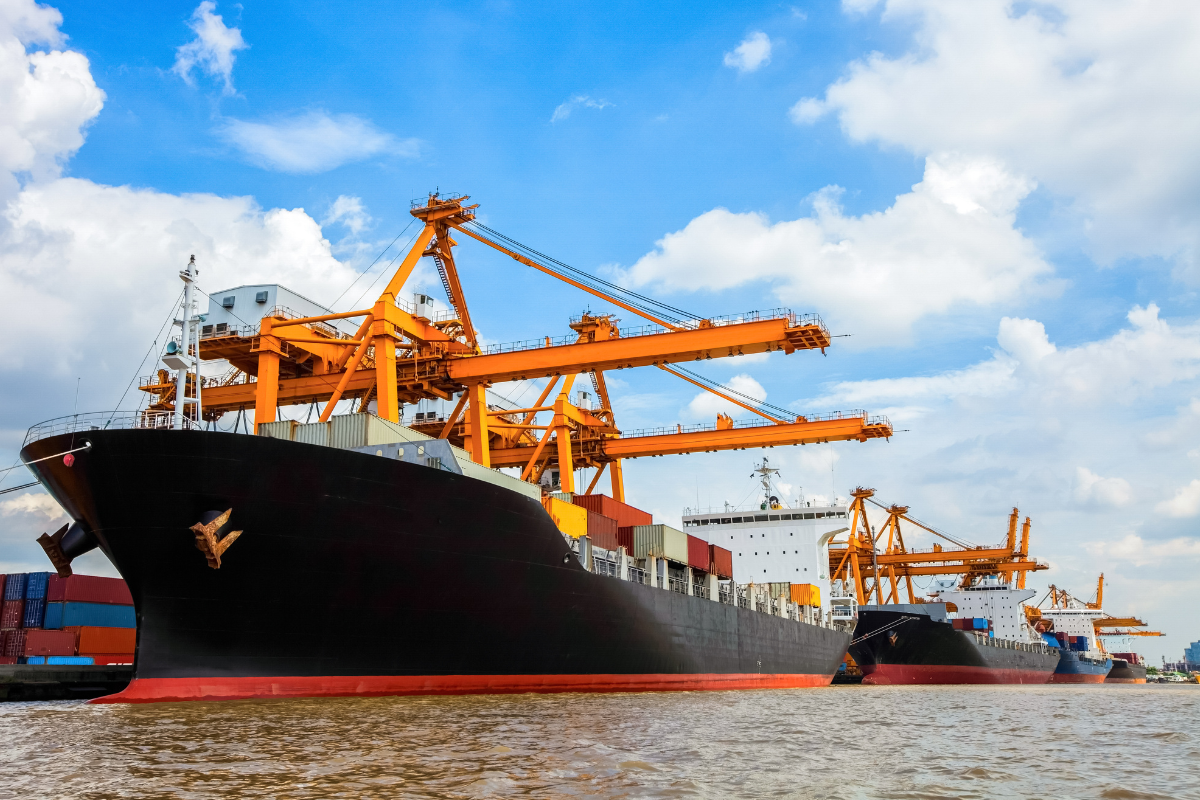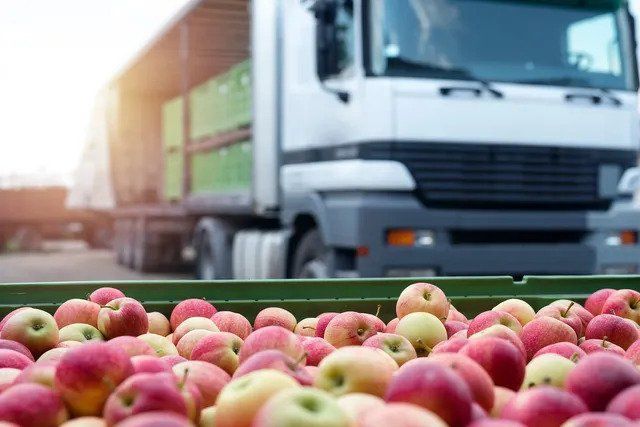BY:
SHARE:

The publication of the UK Border Target Operating Model (BTOM) now guarantees that Northern Ireland businesses will continue to enjoy unfettered access when transporting goods to Great Britain.
The UK and EU reached a consensus on the Windsor Framework in early 2023, designed to secure seamless trade within the UK's domestic market and uphold Northern Ireland's affiliation with the EU customs union. The publication of the UK Border Target Operating Model (BTOM) now guarantees that Northern Ireland businesses will continue to enjoy unfettered access when transporting goods to Great Britain. It also outlines the practicalities for ensuring that traders in Northern Ireland encounter no trade obstacles when moving Northern Irish Qualifying goods from Northern Ireland to Great Britain, directly or via Ireland.
What are Non-Qualifying and Qualifying Northern Ireland Goods?
Qualifying Northern Ireland Goods (QNIGs) are defined by HMRC as goods in free circulation in Northern Ireland, which means goods not under a Customs procedure or in an authorised temporary storage facility. Since January 2021, this definition has remained unchanged. Nevertheless, after engaging extensively with agri-food and farming stakeholders in Northern Ireland, HMRC will implement fresh protocols for traders transporting food and feed products from Northern Ireland.
Qualifying Northern Ireland Goods Exempt from UK Sanitary and Phytosanitary Import Checks
This move by the UK government ensures the benefits of unfettered access are more focused on Northern Ireland Traders. To qualify as Northern Ireland Goods, exempt from import requirements for Sanitary and Phytosanitary purposes, they must be owned or produced by a registered Northern Ireland food or feed business.
Northern Ireland food businesses must register with District Councils or gain approval from the Food Standards Agency, while animal feed businesses must register or gain approval from the Department for Agriculture, Environment, and Rural Affairs. These existing requirements do not impose additional obligations on Northern Ireland businesses for their goods to qualify as Qualifying Northern Ireland Goods.
Food and feed products not owned or processed in Northern Ireland by a Northern Ireland registered or approved business will follow the applicable Sanitary and Phytosanitary import requirements based on risk categorisation, as explained in the Border Target Operating Model.
Timeline and Key Dates
31st January 2024, all non-qualifying goods will face full Customs controls and the requirement for pre-notification and certification when moved directly from Ireland via Irish ports to Great Britain.
Export Health Certificates and Phytosanitary Certificates will be required for Irish medium-risk animal products, plants and plant products moving directly from Ireland to GB ports.
Pre-notification requirements (except for low-risk plants and plant products) and full Customs controls will be introduced for non-qualifying goods moving from Northern Ireland or Ireland to GB.
31st October 2024, The UK Government will introduce documentary and physical identity checks for medium-risk animal products, plants and plant products imported to Great Britain from the EU.
The UK Government will introduce Safety and Security declarations for EU imports. A reduced dataset for imports will be introduced. For 'non-qualifying' goods moving from Northern Ireland or Ireland to GB, documentary and risk-based identity and physical checks on medium-risk animal products, plants, plant products and high-risk food and feed of non-animal origin from the EU will be introduced.
Important - The date for the commencement of physical checks for non-qualifying goods moving from the island of Ireland will be confirmed in Autumn 2023.
Import Processes from the island of Ireland
A. Direct Movements Northern Ireland to Great Britain
Customs Procedures - Arrangements for Qualifying Northern Ireland Goods and Non-Qualifying Goods moving directly from Northern Ireland to Great Britain will remain unchanged. This means Qualifying Northern Ireland Goods will continue to benefit from unfettered access to the Great Britain market with no new checks and controls. At the same time, Non-Qualifying Goods will need to complete Customs declarations and, if arriving in GB in certain locations, must manually notify HMRC of the arrival of their goods by the end of the working day following their movement.
Export declarations, checks, and controls on exit from NI, still apply to a very small group of Qualifying Northern Ireland Goods, due to international obligations like endangered species movement.
Example: Non-Qualifying requiring Customs declaration
Goods moving from the Republic of Ireland to GB via Northern Ireland
B. Indirect Movements Northern Ireland to Great Britain via Ireland
Customs Procedures - When moving Qualifying Northern Ireland Goods via Ireland to Great Britain, in the vast majority of cases, you will no longer need to complete electronic import Customs declarations for your goods movements.
Hauliers - At ports using the Goods Vehicle Movement Service (GVMS), hauliers will still need to complete a Goods Movement Reference (GMR). Still, hauliers will only need to indicate they are moving Qualifying Northern Ireland Goods for most goods movements. Inventory-linked ports or other locations will employ similar procedures to release these goods without electronic declarations.
Hauliers and drivers must have access to commercial evidence and a UK-issued travel document for goods that passed through Ireland to confirm their ‘Qualifying Northern Ireland Goods’ status.
Important - The UK Government will revise the guidance regarding these requirements before January 31st, 2024, and will allow traders and hauliers sufficient time to familiarise themselves with the updated arrangements.
When moving Non-Qualifying goods through Northern Ireland ports to Great Britain, follow relevant import requirements as outlined in the Border Target Operating Model.
To meet Customs requirements, from January 31st, 2024, traders importing Non-Qualifying Goods and goods such as excise goods into Great Britain from Irish ports will need to make their Customs declarations in the Customs Declarations Service (CDS), or work with a Customs intermediary to do this on their behalf. Traders, hauliers, and carriers will need to follow GVMS processes at ports using GVMS.
At inventory-linked ports or other locations, traders will need to follow standard processes to ensure goods are presented to Customs, declared, and cleared before they can be released to free circulation in Great Britain.
Sanitary and Phytosanitary Movements for both Direct and Indirect NI Movements
Arrangements for Qualifying Northern Ireland Goods going directly to Great Britain will stay the same. To maintain unfettered access to the Great Britain market, food or feed product traders must be registered or approved in Northern Ireland, as mentioned earlier.
When moving non-qualifying goods through Northern Ireland ports to Great Britain, follow relevant Sanitary and Phytosanitary import requirements, based on risk categorisation, as outlined in the Border Target Operating Model. The importer must at least pre-notify of all relevant goods (excluding low-risk plants and plant products) using Great Britain's Import of Products, Animals, Food and Feed Systems (IPAFFS), from January 2024, aligning with current requirements for EU imports. Additionally, medium, and high-risk goods will need official certification, with sample documentary checks when applicable.
Following the introduction of documentary and physical checks at West Coast ports, goods may be subject to identity and physical checks on entry to Great Britain, in line with their risk categorisation.
OneCall™ Email assistance as and when required; A one-call solution for all your import, export and customs enquiries. Export help. Import help. Customs help.
Stay informed about customs and international trade matters by subscribing to our OneCall™ service. This comprehensive offering includes a dedicated email helpline for support, timely practical updates direct to your inbox (Did You Know?), monthly UK Customs & Trade Briefings and access to an interactive members' area with an exclusive community for our subscribers.
International Trade Updates & Spotlight Newsletter
Subscribe to our free information emails covering international trade topics...
MORE INDUSTRY INSIGHTS...












